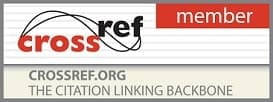International Journal of Homoeopathic Sciences
2023, Vol. 7 Issue 1, Part D
Physiology of Ageing
Author(s): Dr. Preetha B
Abstract:
Gerontology studies the elderly. Gerontologists say ageing is four-dimensional. Ageing theories attempt to explain ageing over a 120-year lifespan. The ageing theory can be traced back to Dr. August Weismann's 18th-century theorem that metabolism and lifespan are inversely related. Free radicals from basic metabolic processes damage cells and organs.
Studies showed that pituitary-deficient mice lived longer and aged later. Joint, bone, fat, and muscle changes with age affect our physical and mental development. Presbyopia occurs when the lens loses flexibility and thickens, making close-up vision difficult. Brain mass decreases by 30% by age 80. Early learning and short-term memory are affected.
Kidney thickening and permeability decrease with age. These are major risk factors for arterial fibrillation, hypertension, and stroke. Leakage, urine retention, and UTIs increase as bladder muscles weaken. Malnutrition, postprandial hypotension, dysphagia, constipation, and faecal incontinence are common in older people. Several types of calcium and iron are malabsorbable in achlorhydria. Vitamin D malabsorption worsens elderly hypovitaminosis.
Pages: 196-199 | 757 Views 380 Downloads

How to cite this article:
Dr. Preetha B. Physiology of Ageing. Int J Hom Sci 2023;7(1):196-199. DOI: 10.33545/26164485.2023.v7.i1d.750







